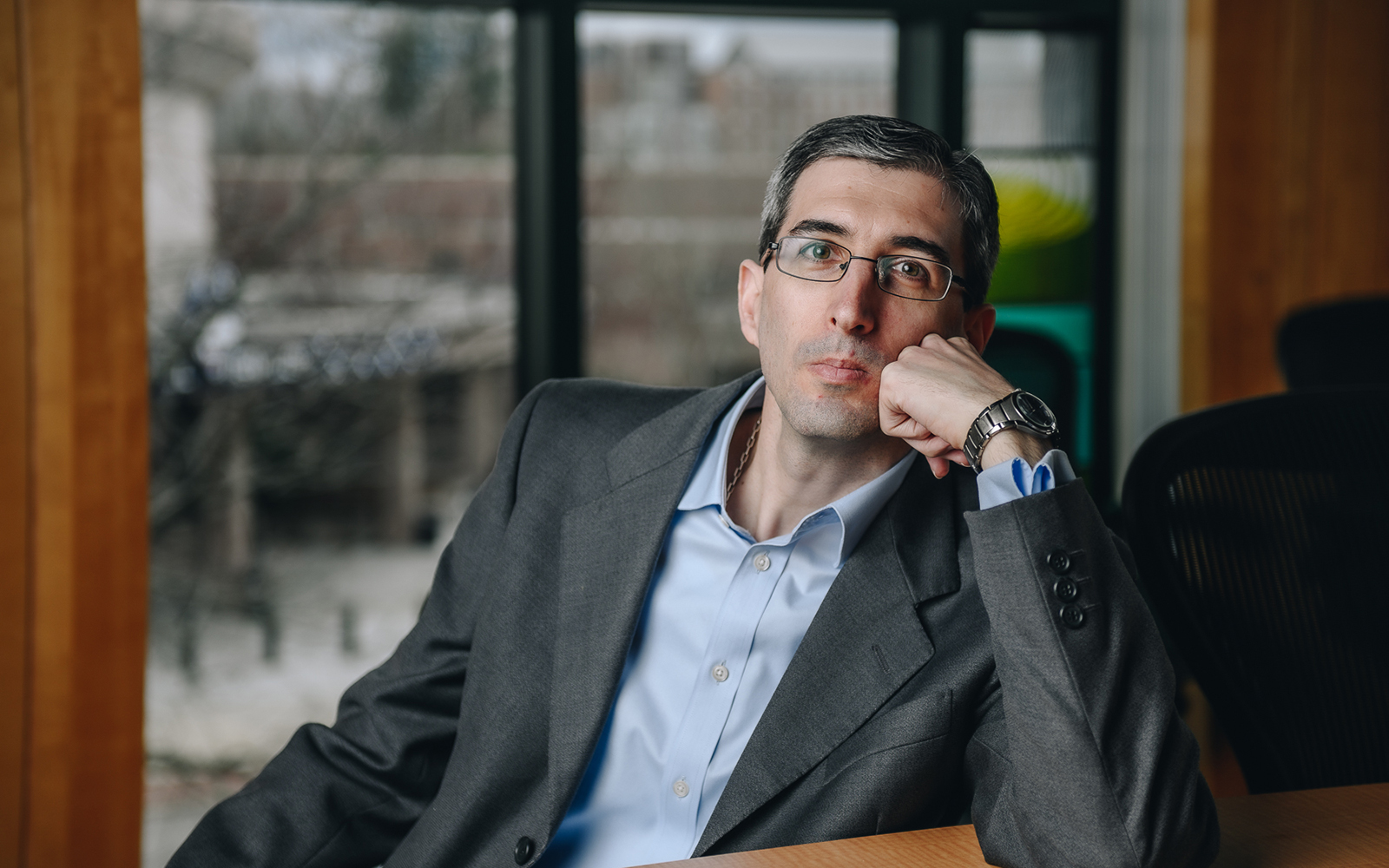
Jose Vicente Martinez, assistant professor of finance, joined UConn six years ago, after working as a university lecturer and senior research fellow in finance at Said Business School at the University of Oxford.
He earned a Ph.D. in finance from the Graduate School of Business at Columbia University, and later completed a research fellowship at the Institute for Financial Research in Stockholm.
Martinez teaches primarily in the Financial Risk Management graduate program. His research focus involves investment behavior and the practices of institutional asset owners and individuals, with a particular interest in safeguarding retirement funds.
Q: Why did you develop an interest in the investment of pensions and retirements funds?
A: I guess you choose to worry about something, and that’s what I worry about! I grew up with the expectation that if you work hard for many years, and you save a bit of your salary, when you get to be 70 and want to slow down, you won’t have to worry about earning a living any more. But, who can you trust to safeguard your money? While nothing is failure proof, the system should deliver.
Q: What is the business problem you’d most like to solve?
A: Most of my research centers on investment behavior and practices of institutional asset owners and the way that retirement savings is invested and protected. The scope of my work covers pensions, foundations, endowments and insurance companies.
These institutions frequently delegate the management of their assets to one, or more, asset managers. This is a very important decision, with benefits and consequences for everyone who relies on these investments.
My colleagues and I study the relationship between institutional asset owners and the investment experts they hire for advice. We are interested in whether hiring advisors or consultants shields [asset owner] executives from responsibility, and if it affects their decision making. We are also interested in the relationships between these consultants and the asset managers they recommend, and in whether those relationships can bias their recommendations. Another question that intrigues us is how can we identify adviser quality, separating the skilled from the lucky, the trustworthy from the lemons. We also investigate whether those seeking retirement advice are able to do this.
I enjoy the way finance, data analysis, and decision-making all come together. I’ve always cared about retirement. Saving for retirement is very important and has profound personal ramifications.
Q: What changes would you like to see in our current system? Is there anything that could be done to better serve the future retiree?
A: Two things that would help would be proper actuarial accounting of pension liabilities in defined benefit plans, and low fees and a small number of sound investment options in defined contribution plans. That would help simplify the system and make it more transparent. From that point on, it is up to individuals to make the right decisions; at some point there is no escaping that.
Q: Your interests include household finance. Can you explain?
A: I’m interested in financial decisions made by individuals about how they save for retirement. People make financial decisions all the time, but how prepared are they for the life-changing ones? Do they have the right information or knowledge?
Because retirement investing is so complex, many people turn to a financial adviser. It is important for them to do their homework, just as they would when they select a doctor or a child-care provider. They need to find someone with an outstanding reputation. But that’s not the end of the process. They can’t just close their eyes and hope for the best. People must insist that their financial adviser address their individual needs and concerns.
Q: What financial question would you like to research some day?
A: I’m very interested in the connection between investing and environmental issues. There’s a huge push for these newer, social-conscience investment policies because institutions do not want to be linked to a company that is detrimental to the environment.
I wonder about how effective these strategies are. Is it all about ‘green washing’ or is it really making a difference? Do people/institutions seek sustainable investments to make a difference, or because it makes them feel better? Are they merely doing it as a way to mitigate, or hedge, environmental risk in their portfolios? At the end of the day, what is the cost of these decisions for investors, and the benefit for the environment? I want to see the sort of impact that environmental-social investment makes.
Q: Do you have a financial philosophy that you live by?
A: Although I’ve spent my entire working life as a finance professor, I’m not particularly obsessed with money. I’m not a big spender, so I don’t need that much money to get by. For me, having free time to research, explore, and hopefully solve problems, is the ultimate bonus!